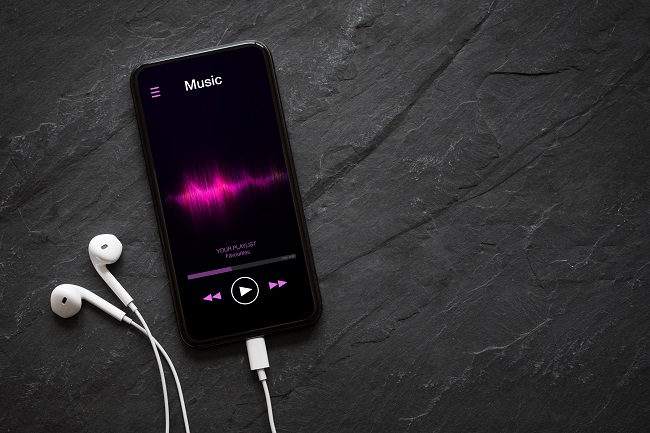research
Decline in human mobility has stunning consequences for content streaming

< On average, audio music consumption decreased by 12.5% after the World Health Organization’s (WHO) pandemic declaration in March 2020. >
The Covid-19 pandemic and lockdowns significantly reduced the consumption of audio music streaming in many countries as people turned to video platforms. On average, audio music consumption decreased by 12.5% after the World Health Organization’s (WHO) pandemic declaration in March 2020.
Music streaming services were an unlikely area hit hard by the Covid-19 pandemic. New research in Marketing Science found that the drop in people’s mobility during the pandemic significantly reduced the consumption of audio music streaming. Instead, people turned more to video platforms.
“On average, audio music consumption decreased by more than 12% after the World Health Organization’s (WHO) pandemic declaration on March 11, 2020. As a result, during the pandemic, Spotify lost 838 million dollars of revenue in the first three quarters of 2020,” said Jaeung Sim, a PhD candidate in management engineering at KAIST and one of the authors of the research study on this phenomenon. “Our results showed that human mobility plays a much larger role in the audio consumption of music than previously thought.”
The study, “Frontiers: Virus Shook the Streaming Star: Estimating the Covid-19 Impact on Music Consumption,” conducted by Sim and Professor Daegon Cho of KAIST, Youngdeok Hwang of City University of New York, and Rahul Telang of Carnegie Mellon University, looked at online music streaming data for top songs for two years in 60 countries, as well as Covid-19 cases, lockdown statistics, and daily mobility data, to determine the nature of the changes.
The study showed how the pandemic adversely impacted music streaming services despite the common expectation that the pandemic would universally benefit online medias platforms. This implies that the substantially changing media consumption environment can place streaming music in fiercer competition with other media forms that offer more dynamic and vivid experiences to consumers.
The researchers found that music consumption through video platforms was positively associated with the severity of Covid-19, lockdown policies, and time spent at home.
-Publication
Jaeung Sim, Daegon Cho, Youngdeok Hwang, and Rahul Telang,
“Frontiers: Virus Shook the Streaming Star: Estimating the Covid-19 Impact on Music Consumption,” November 30 in Marketing Science online (doi.org/10.1287/mksc.2021.1321)
Professor Daegon Cho
Graduate School of Information and Media Management
College of Business
KAIST
-
research KAIST leads AI-based analysis on drug-drug interactions involving Paxlovid
KAIST (President Kwang Hyung Lee) announced on the 16th that an advanced AI-based drug interaction prediction technology developed by the Distinguished Professor Sang Yup Lee's research team in the Department of Biochemical Engineering that analyzed the interaction between the PaxlovidTM ingredients that are used as COVID-19 treatment and other prescription drugs was published as a thesis. This paper was published in the online edition of 「Proceedings of the National Academy of Sciences of Ameri
2023-03-16 -
research A Mathematical Model Shows High Viral Transmissions Reduce the Progression Rates for Severe Covid-19
The model suggests a clue as to when a pandemic will turn into an endemic A mathematical model demonstrated that high transmission rates among highly vaccinated populations of COVID-19 ultimately reduce the numbers of severe cases. This model suggests a clue as to when this pandemic will turn into an endemic. With the future of the pandemic remaining uncertain, a research team of mathematicians and medical scientists analyzed a mathematical model that may predict how the changing transmissio
2022-02-22 -
fund Seegene Opens Covid-19 Testing Mobile Station on Campus
Seegene donates testing reagents for 40,000 people with results available in three hours Seegene, a molecular diagnostic testing company, donated enough testing reagents for 40,000 COVID-19 tests for the KAIST community and set up a mobile testing station run by the Seegene Medical Foundation on October 28. The entire COVID-19 diagnosis process, including specimen collection, PCR testing, and results analysis, can be conducted at the mobile testing unit developed by Seegene. The on-site tes
2021-11-03 -
event MCM Utilized at Residential Treatment Center in Gyeonggi
The Mobile Clinic Module (MCM) developed by the KAIST Action for Respiratory Epidemics was installed at special residential treatment center in Gyeonggi Province on September 13. The MCM is an isolate negative pressure unit fitted with high-quality medical equipment, developed by Professor Taek-Jin Nam of the Department of Industrial Design under the KAIST New Deal R&D Initiative. This is also a part of the Korean Disease Control Package Development Project from last July. In January, a
2021-09-15 -
research A Study Reveals What Triggers Lung Damage during COVID-19
A longitudinal study of macrophages from SARS-CoV-2 infected lungs offers new insights into dynamic immunological changes A KAIST immunology research team found that a specific subtype of macrophages that originated from blood monocytes plays a key role in the hyper-inflammatory response in SARS-CoV-2 infected lungs, by performing single-cell RNA sequencing of bronchoalveolar lavage fluid cells. This study provides new insights for understanding dynamic changes in immune responses to COVID-1
2021-08-04